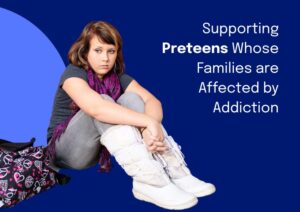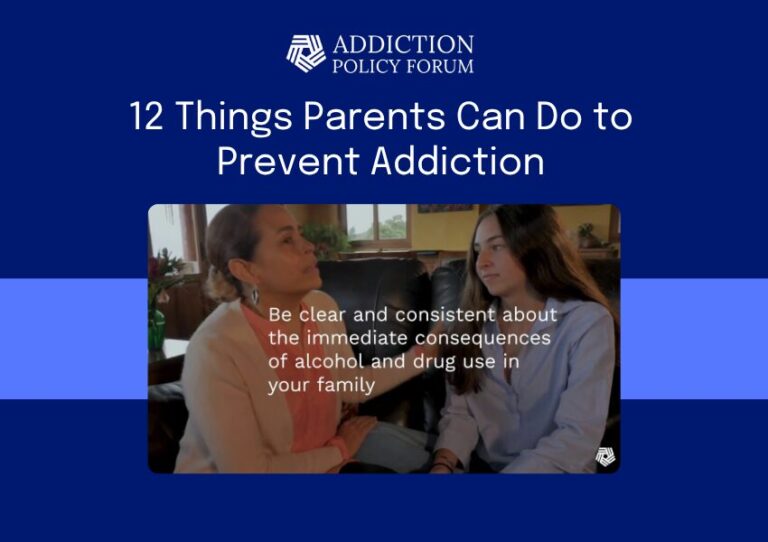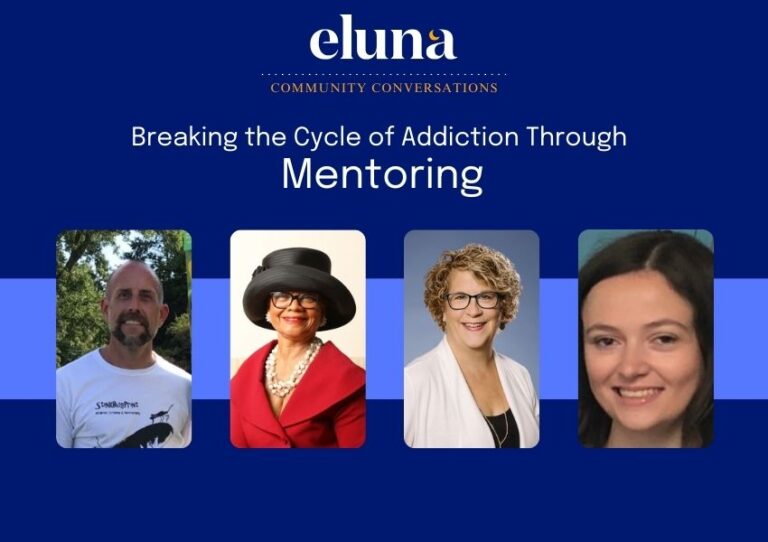Supporting Preteens Whose Families are Affected by Addiction
 Navigating a family member’s substance use disorder can be challenging at any age. However, child development theory and research tell us that children process stressful events differently based on their unique developmental stage.
Navigating a family member’s substance use disorder can be challenging at any age. However, child development theory and research tell us that children process stressful events differently based on their unique developmental stage.
This article will review common trauma responses followed by tips for education, prevention, and mentoring for the age & stage: PRETEENS (ages 9 – 12)
Click here to access the full article on all Ages & Stages
This information is based on child development and psychology research, but it’s important to note that research often leaves out marginalized groups. Children from minority cultural or religious backgrounds may have different responses and needs in the face of traumatic events. Children with developmental disabilities may not match the typical expectations for their chronological age. Even children who are not diagnosed with a developmental disability may experience developmental regression as a trauma response. If you are reading this article with a specific young person in mind, remember that these general guidelines may not accurately reflect the experience of each individual.
Education
By age 11, most kids have a solid understanding of physical illness and a developing concept of mental illness. They can recognize when someone’s behavior differs from the norm, speculate about potential causes of psychological difficulties, and identify potential sources of mental health support. [Sources 14, 15, 16, 17] You can talk about substance use disorder as a treatable mental health condition, and note that there are many potential factors that lead to substance misuse – but the child isn’t one of them! For an age-appropriate conversation starter, try a children’s book like Selah Has a Secret or check out the others on this list.
“Grandma has a mental illness (a sickness in your brain) that people call “substance use disorder” or “addiction.” People with substance use disorders feel like they need to take drugs or alcohol to feel okay. Taking too much of these can make Grandma act strangely and make her body sick.”
“Substance use disorder is treatable. Grandma works hard to stay away from drugs and alcohol so her body and brain can stay healthy. She sees a therapist – a ‘feelings doctor’ – to set goals and talk about other ways to feel okay.
“There are lots of different reasons why someone might start to misuse drugs or alcohol. They might feel really scared or sad about something that happened to them, and drugs or alcohol make them feel better for a short while. They might have been around drugs or alcohol a lot when they were younger, or have friends who pressure them to keep using drugs or alcohol. It’s important to remember that Grandma’s substance use disorder is not your fault.”
Prevention
Having a family history of substance use disorder puts youth at increased risk of their own substance misuse, but prevention strategies can change that. For preeteens, consider the following:
- have open, honest discussions with preteens about drug use and real-world consequences
- encourage critical thinking and decision-making skills by discussing various scenarios they might encounter
- lead by example and foster a strong sense of self-worth and belonging through extracurricular activities
- keep the lines of communication open, ensuring they feel safe discussing any topic
- introduce age-appropriate media, such as Natural High, a drug prevention nonprofit that inspires and empowers youth to find their natural high
- for more, see Prevention Tips for Every Age.
Mentoring
Research tells us that connecting with a caring adult mentor is one of the best strategies for prevention and support for children affected by a family member’s substance misuse, and kids who connect with a mentor earlier in life get the most benefit. For this age group, we recommend:
- Camp Mariposa is a year-round addiction prevention and mentoring program for youth ages 9-12 who are affected by the substance use of a family member. Youth will participate in fun, traditional camp activities combined with education and support sessions led by mental health professionals. Social support is a key outcome; 97% of participants report there are adults they can trust at Camp Mariposa.
- If you don’t have a Camp Mariposa site in your area, find a mentor near you through Mentor: The National Mentoring Partnership.
Possible trauma responses
Preteens may not always know how to verbalize challenging feelings related to a family member’s substance misuse, so it’s important to look for behavioral cues. Here are some possible trauma responses to look out for [sources 18, 19]:
- feelings of personal guilt or shame
- lack of concentration
- changes in academic performance
- difficulty sleeping
- psychosomatic symptoms like stomach aches or headaches
- withdrawing in social situations or “acting out” through aggressive or reckless behavior.
Support
Youth whose families are affected by the disease of addiction can often become isolated from communities of support. Here are some recommended programs that focus on both prevention and peer support to help bridge and rebuild connections:
Youth Support Programs
- Camp Mariposa: A year-round addiction prevention and mentoring program for youth affected by the substance use of a family member.
- Hazelden Betty Ford Children’s Program: Provides support, education, and care to kids (ages 7 – 12) who grow up in a family with alcohol or other drug addiction.
Caregiver Support Programs
- Parents of Addiction Loved Ones (PAL): Parents with an adult child dealing with substance use disorder involving either drugs or alcohol can find hope and support through Parents of Addicted Loved Ones (PAL). Meetings are available all over the country.
- CheckDEC: A free mobile app that immediately connects children, families, and professionals to substance abuse-related information, crisis helplines, drug and treatment information, supportive resources, and services within their local area. Brought to you by the National Alliance for Drug Endangered Children and Office for Victims of Crime
For more support options, jump to our hub of recommended programs & resources.
*Special thanks to Eluna volunteer, Mary Ann Gill, for supporting the development of this resource!

